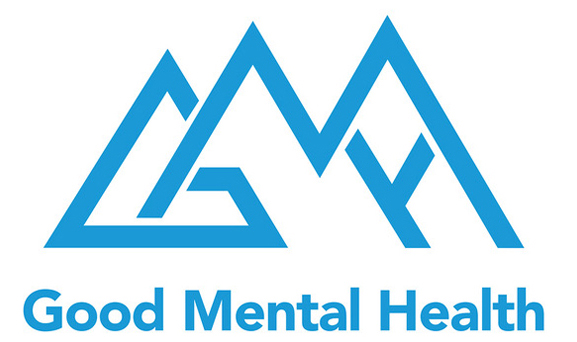Children born into dysfunctional families were bred to suffer.
During childhood, service to the dysfunctional system took precedence over everything else. Whether it was alcoholism, drug addiction, or mental illness, everyone in the family had a role to play which gave preferential treatment to the person with the disorder.
The disorder was so central to the family system that, in many ways, the disorder was like an additional family member.
The roles placed upon us were so common they could be identified, studied, and named: golden child, hero, lost child, and scapegoat.
The golden child was often the youngest, or baby of the family, who could do no wrong and unfortunately became a mini-version of the addict. The hero was often the oldest, who took on the most responsibility and the role of substitute parent. The lost child was the child who dissociated to the point that they were physically present, but often mentally checked out, surviving by living in their own little world. And then there was the scapegoat: the child who, because of their heightened consciousness, knew that the dysfunction was corrupt, toxic, and unacceptable; and because they said so, they were either punished for their disloyalty to the family or excommunicated for it. For more information, read [The New Codependency].
If you are looking for answers and found your way here today, you are likely a scapegoated child. In spite of the pain you may feel, know that you are one of the lucky ones.
The goldens, the heros, and the lost children tend not to fare as well as the scapegoats.
Lack of self-care and why we continue to suffer
As children, walking on egg shells was the norm.
We lived with an intense level of control, attempting to maintain the delicate balance between peace and chaos.
And because the chaos was so awful, it made the peaceful times feel like a ticking time bomb. We lived day-in, day-out with a suffocating feeling in our chests, waiting for the next explosion to occur.
Living with an abuser was like walking a tightrope, with the ever present threat of falling to our deaths.
Walking the tightrope meant always putting the wants, needs, and desires of the abuser above our own.
Walking the tightrope meant we wouldn’t invite friends over after school because she wouldn’t tolerate outsiders; we wouldn’t ask for money for clothes or lunch, because it might incite a rageful outburst over how entitled and ungrateful we were; we wouldn’t talk, or laugh, or joke for fear of drawing attention to ourselves and becoming the next target.
Most of us do not live with our abuser anymore.
Some of us have replaced one abuser for another, which is a different conversation for a different time.
But we still don’t put our needs first.
We just don’t know how.
And the dysfunction of that dysfunction is that society perpetuates the belief that we shouldn’t put our needs first.
Suffer today, reap the benefits tomorrow: AKA the Puritanical work ethic and the lack of self-care
The best way to control a victim is through fear.
Since children of dysfunctional families have already experienced victimhood early in life, it makes us very amenable to adopting other abusive relationships. Taking the back seat feels familiar to us, if not comfortable. Denying our own needs in the service of someone, or something, else feels normal.
And relationships don’t have to be intimate to be abusive.
We take jobs with toxic bosses, back-stabbing co-workers, and the constant threat of termination. Fearful of rocking the boat by doing things that would benefit us (self-care), we pass up opportunities, go to work when we’re sick, squander our vacation time, and work around the clock, answering calls and emails that could certainly wait.
We voluntarily enter into religious organizations which teach us that suffering today will yield the kingdom of heaven after we die. This is a fool-proof technique to control the masses. It’s not like anyone can conduct an expose’ and negate their assertion!
Our consumer-driven society excels in convincing us of all our faults and flaws so that we will rush out to purchase their next available fix.
The mores of our society teaches us no pain, no gain. That life is hard. That we must struggle.
We become indoctrinated with the belief that in order to accomplish anything, or have anything of value, that we must suffer first.
We actually become suspicious of anything that is easy, joyful, and fun.
But here’s the problem: there’s no gold medal for suffering.
Suffering will not make us richer. Suffering will not makes us more successful. Suffering will not make us happier.
Suffering only makes us suffer.
And our deathbed is not the podium on which we will be awarded the medal for “most suffering through life.”
The importance of self-care
There is no such thing as a happy tomorrow if we’re suffering today.
What we focus on today creates our tomorrow. If we are unhappy now, we will be unhappy later. It’s the way manifestation works.
Under no set of circumstances will suffering ever get us what we want, especially if what we want is to be happy.
Being happy creates happiness.
Self-care is the practice of making daily decisions that support feeling joyful in our lives. Self-care is the antidote for suffering.
The process of incorporating self-care into our daily lives is simple but not easy.
If we make a short list of the things which bring us joy- close relationships, fulfilling work, physical fitness, creativity- the act of self-care means incorporating these things into our daily lives.
That means every day.
In order to make room for things that bring us joy, we have to release our need to suffer. There isn’t room for both.
How to Incorporate Self-care into Daily Life
To have close relationships, we have to spend quality time with each other. That means turning off the phone and really listening.
Fulfilling work means continuously evaluating if a work environment is the best fit for our talents, skills, abilities, and personality. We should always be open to new and better opportunities where we can feel more productive, valued, and joyful.
Physical fitness means moving our bodies and eating well every day. It’s the conscious decision to make time to juice, or pack a healthy lunch, to go to that yoga class, or take a walk.
Creativity must infuse every action, every endeavor. Our creativity is precisely what makes us special and unique. It belongs in every area of our lives. We were not meant to be painters on the weekends, we are artists every second of every day.
What you fit in each of your 24 hours becomes your life.
For more ideas and inspiration about systemizing your life for joy, I highly recommend reading [The Effortless Everyday]
Wrap up
We know we’re going in the right direction when things are coming easily.
When we are living in the flow and feeling joy in all we do.
In spite of what a dysfunctional childhood tries to convince us of, joy is the key to success.
Putting our happiness first by seeking out situations that feel good and joyful and fulfilling allow us to manifest more situations in which we will feel good, joyful, and fulfilled.
Don’t fall for the lie. Happiness is the Kingdom of Heaven.
How about you? What acts of self-care do you instill into your every day?
As always, if you found this information helpful, please share it. And if you feel you are in the exact right place and would like access to more resources and guidance, read more about the Good Mental Health team and join us on Facebook.



 Hi, I'm Diana Brummer a psychotherapist, writer, and coach in St. Johns, Florida. I love helping people thrive in their relationships and their lives. My hope is that you find the information in these articles educational and useful. Thank you for stopping by!
Hi, I'm Diana Brummer a psychotherapist, writer, and coach in St. Johns, Florida. I love helping people thrive in their relationships and their lives. My hope is that you find the information in these articles educational and useful. Thank you for stopping by! 
